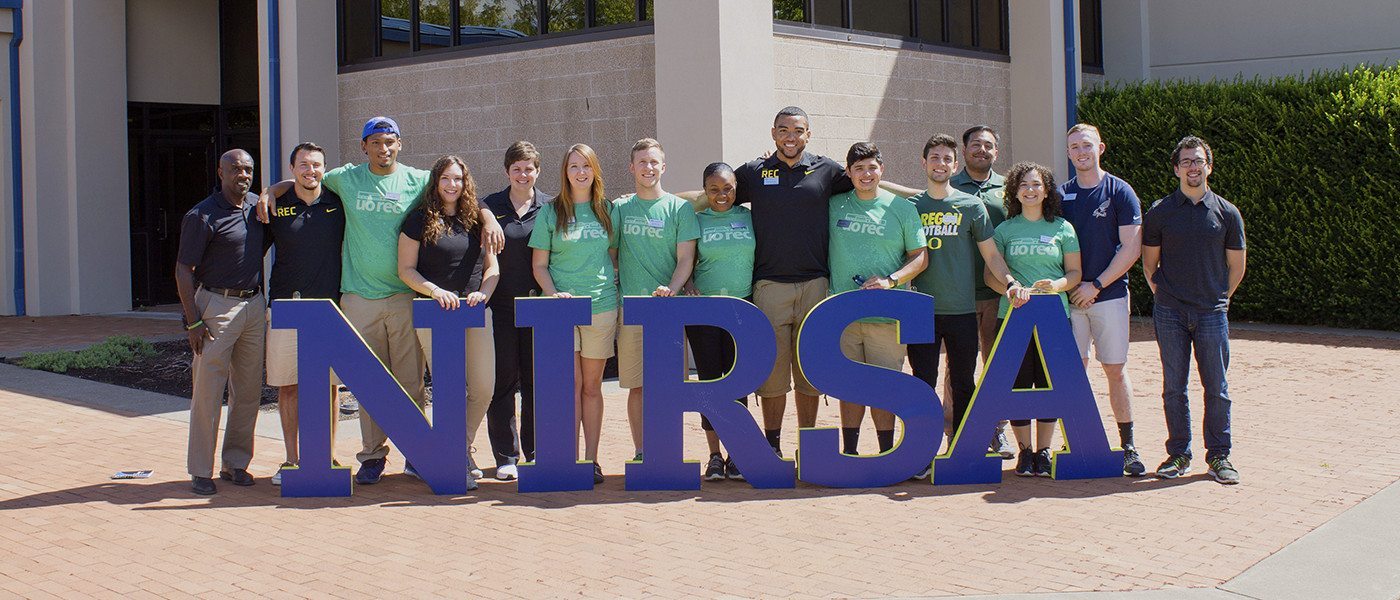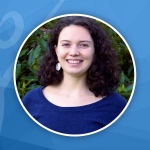On Wednesday, July 13, interns from the University of Oregon visited NIRSA Headquarters. The 12 interns, who hailed from various home institutions, each had a chance to introduce themselves to HQ staff and explain their interests within collegiate recreation as well as the projects they were working on as a part of their internships. Additionally, HQ staff introduced themselves to the U of O visitors, letting them know all about their diverse educational and professional backgrounds.
After the introductions, everyone had a chance to mingle and chat. Interns spoke to NIRSA staff members who worked in departments that interested them. This helped them build a stronger connection between their student work and their professional goals. These conversations were mutually beneficial—interns got to see what real-world positions can look like in the field of recreation, and NIRSA HQ staff got a greater sense of what happens on the ground within our member institutions.
Not all interns were studying fields related to recreation, but through their work on their campus rec internship projects they were able to explore the broad scope of topics that the recreation field has to offer. The internship program is offered to students interested in pursuing careers in fitness, recreation, and sport, but can be especially useful to those who are unsure about their career path. For example, those who may have an interest in recreation but are studying a different field. Intern Eoin Conroy, for instance, had been interested in becoming a personal trainer. However, prior to his internship at the University of Oregon, he didn’t know that pursuing a career in recreation was an option—let alone how extensive the field was.
Even those more familiar with the field found that their internships had widened their understanding of what “recreation” means. Intern Demitri Lahanas spoke about the implementation of nap pods within certain workplaces and recreational spaces, and said that he’d come to think of sleep as a form of recreation. For students like Demitri who interpret “recreation” as being primarily related to sports, the internship opened up more holistic and wellness-focused possibilities.
The interns were divided into three project groups, each studying a different topic within the field of recreation. One group studied trends within recreation and physical education courses at 60-80 different schools. Through this work, interns were able to gauge student interest in certain types of physical activity, and then could apply that information to their home institutions’ rec programs for higher student satisfaction rates and better relevancy.
Another project measured the emergency response trainings of schools, putting their programs into tiers of success. The goal of this project was to discover a benchmark for emergency preparedness as well as what the University of Oregon could do to increase its level of preparedness. The last project focused on inclusive recreation—how to better serve students with various abilities and backgrounds.
Kevin Marbury, Director of Physical Education and Recreation at the University of Oregon, noted that actual implementation of intern projects has happened frequently in the past. The work that campus rec interns do can enrich the rec programs at institutions across the country and beyond, and also enriches the professional development of the student interns. Tiffany Lundy, Associate Director of Facilities, Operations, and Services, spoke about a past intern project on workout etiquette that has been implemented within the University of Oregon recreation center. She said that implementation of this year’s intern projects is already underway.
Creating a connection between University of Oregon interns and NIRSA staff was a positive experience for all involved—it helped interns see what an association based around recreation looks like, and it helped NIRSA staff find parallels between the work they do at HQ and what happens in recreation centers on campus. As Tiffany Lundy noted, the visit helped to “elevate the field” of recreation.
Rebecca Reeves is currently the Administrative Assistant to the Executive Office at NIRSA








